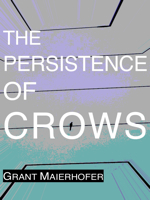 When it comes to characters, every writer has their preferences. For Thomas Bernhard, the 20th century Austrian writer who seduces readers with blocks of musical prose, it is the fastidious intellectual intent on developing his master work.
When it comes to characters, every writer has their preferences. For Thomas Bernhard, the 20th century Austrian writer who seduces readers with blocks of musical prose, it is the fastidious intellectual intent on developing his master work.
There is Konrad, the homebound scientist in The Lime Works, who uses his crippled wife to further his research on the sense of hearing.
There is Rudolph, the mortally ill musicologist in Concrete, who exerts his last energies on writing a major piece about Felix Mendelssohn Bartholody.
And there is Roithamer in Correction who will let nothing, not even himself, deter him from completing his ungainly manuscript, “About Altensam and everything connected with Altensam, with special attention to the Cone.”
Men with an aim, a definite goal, specific in every aspect, this is the mold Bernhard deftly shapes into life with his German prose; however, it is only Roithamer who sees his aim through to the end. The others waffle in their intentions, pacing the lengths of their cold houses in desolate locations with revolutionary ideas but nothing to show.
Roithamer, on the other hand, will not let the end go escaped because he is practical.
Unlike Konrad and Rudolph, he is well aware of the obstacles that he will face along the way – the opposition of outsiders; his own irritability; his debilitating anal retentive ways that he must succumb to; and the perpetual question of where should I write, whether Cambridge, Hoeller’s Garret, or Altensam itself will prove the most congenial for his massive undertaking – and it is this awareness that allows him to persevere in the face of so-called writer’s block.
Even Roithamer’s own end is, unlike Bernhard’s other fastidious lead roles, realized.
Hardly ironic, the ultimate correction corrects Roithamer’s very existence when he hangs himself. Corrects it in the sense that throughout the course of his life he has, against his will, become another man, one whom he doesn’t want to be anymore.
Exposed to his parents from an early age, in particular his mother, a backward educational systems that stifles growth, and the reckless demands of others, Roithamer matured into a man he did not like, a man he had no desire to be, could not be, so he had to correct it, he had to become, or rather, retrieve the man he was.
Like the process of correcting a manuscript, changes are made, deletions abound, stets number fewer, and the manuscript that was soon becomes another, entirely different manuscript. The process repeats itself: more deletions, less stets, word count pared until nothing remains, till the manuscript is what it has always been, an empty page, corrected to the fullest, origin retrieved.
“The end is no process. Clearing,” so Roithamer.








